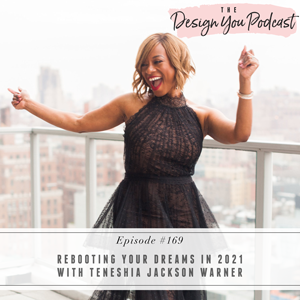
Hey all you dreamers out there, are you ready to get your dreams on? After this past year, we all need to reestablish our dreams – I know I do! And today’s guest joins me to share why dreaming is important, what to do when your dreams get off track, and what you can do to reintroduce your dreams and unleash them. Get ready to be inspired to put dreaming back into your life.
Teneshia Jackson Warner is an award-winning multicultural marketing expert, purpose-driven entrepreneur, and author of The Big Stretch. She is the founder, CEO, and Chief Creative Officer of EGAMI Group, a leading multicultural marketing and communications firm in Manhattan as well as founder of The Dream Project. She’s here to talk about her work and share why we all need to dream more.
Listen in this week to discover how our dreams provide us with a way to experience different versions of ourselves, and how to let go of what’s holding you back from dreaming fully. Teneshia shares what it means to fight for your dream and how to overcome obstacles to take action and make your dreams a reality. If you’re ready to be committed to your dream for the long term, no matter what, you’re going to love today’s episode!
If you want help creating a business with thriving revenue streams so that you can design the life you really want this year, now is your chance! We’re going to be opening the doors to the Design You Coaching Program really soon, get on our waitlist now!





